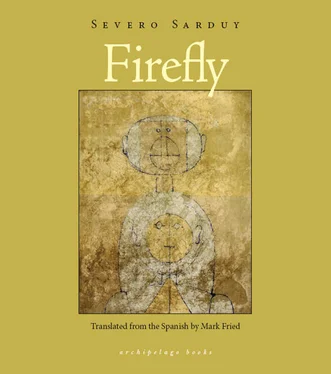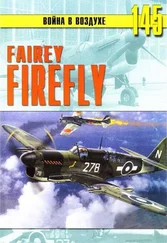He continued trudging along the boardwalks suspended over the muck, cobbled together with flimsy planks and wobbly, poorly anchored pillars, very high above the water. These wooden paths were not straight, rather they converged and forked with no apparent motive, perhaps following the precarious solidity of the ground or the convenience of the impromptu mullet fishermen, hungry for the oily opalescent eggs, who with nothing more than a lantern and a hammock occupied the derelict houses during the season and vacated them as soon as the ban was declared.
Suddenly, several of the creaking walkways seemed to flow into one, wider and more solid than the others, made with sturdier crossbeams. In the distance, sinking into the sea, or into that mortar of brine and silt that took its place on the nearby horizon, he could make out an enormous house, fixed up not long ago and slathered with garish colors.
These were not canals the way the lunar herald had announced; more like mud creeks, thinner and more fluid than the rest of the bog.
Firefly picked up his pace. He was zipping along now, closing in on the lurid purple doorway, anxious to read the words engraved on a vertical piece of varnished wood carved in undulations, like a prayer flag, when an ill-fated skid sent him face-first into the muck.
He started flapping his arms, as if anyone could swim in that slime. He was sinking. He knew that he had to hold still, that every attempt to rise up would bury him further. Carefully he stretched one leg, then the other. But he could not bring himself any closer to the posts holding up the boardwalk, though they were nearly within reach, an arm’s length away.
His body was a thing apart, a rough and shoddy entity he neither felt nor wished to feel.
The muscles in his arms were useless. For an instant, he imagined them bulging and covered in tattoos; he dreamed his body was obeying him, climbing effortlessly up to the boardwalk. He breathed deeply. He stiffened up. He remembered the stepladder he had mounted as a child in order to describe the hurricane.
Then he realized how alone he was. Unless he managed to clamber up on that boardwalk, no one would rescue him and he would sink for good into the mud, into the rot.
He tried to call for help, knowing it was useless.
Such a familiar failure: He opened his mouth and nothing came out.
He decided to wait. To attempt no movement. His body became somehow undifferentiated, mixed in with the slime and of the same texture. All he had to do was stop breathing and thinking to become forever one with the bog; he was already an inert substance, scum in the scum.
For Firefly an entire day went by, even if in the crude ticking of clocks the interval lasted only an hour. He thought he would never reach those posts, that he would become completely immobilized, a stone statue fallen into the muck centuries ago. He was crying, he realized. He had no idea how much time had truly passed.
The surface of the mud was swarming. Thousands of iridescent green insects with gigantic legs and filigreed wings jumped and chased each other on the thin mossy coating; others navigated slowly, sliding in pairs along minuscule shoots from one lily pad to the next.
A frog jumped.
The sun began to go down.
Firefly opened his eyes, perhaps to hear better.
He turned his head. Yes, it was the distant roar of a motor. A small boat was approaching from the sea.
“A drowned man!” yelled one of the crew. “A drowned man!”
Firefly recognized them right off. In taking away his sense of direction, Mother Nature — always stingy in her consolations — had given him the ability to recognize anyone immediately, no matter if he had only laid eyes on him once and just for a moment. In this instance, he was certain that both of them had been in the basement of the Gothic tower.
They pointed at him from afar with curiosity bordering on disgust; he might have been a beached shark. Between sneering jibes, they fished him out, sopping and silent.
“Just what you deserve, kid, so you’ll learn not to get drunk and wander about alone in places like this!” one shouted at him.
“Come off it, pal,” replied the other. “You can see he’s old enough for that! He wasn’t going to spend his whole life jerking himself off!”
The man was wearing nothing but a bathing suit and a thick silver chain bearing a charm. He was emaciated. His cranium shone with the morbid gleam of tanning oil. His flesh was milky and insipid.
The other, redheaded and freckled, came armored with a baseball cap and green sunglasses, a big flowery shirt, very tight white pants, and canvas shoes.
Once they had deposited Firefly in one of the white seats of their impeccable launch, like a freshly caught porgy left to suffocate on dry land, they carried on with the taunts, since watching him gasp for breath seemed to amuse them.
“Have some rum to warm up. Though you must be pretty warm already to end up down there, right?” They cracked up.
“I. I was looking for the big house,” Firefly tried to explain. “A big house where two canals meet.”
“Aha! So you don’t know your way around here and don’t even have a clue what’s what! Then what were you doing here alone at this time of day, girlie? Fishing around for the big bullfrog?” More cackles.
“Enough, cut the clowning,” the bald one decided. “If you want to go into the pavilion, we’ll take you. That’s why we’re members and come whenever we feel like it. Though we always take the boat, not like you dragging yourself through the mud. Dry yourself off with this sponge. And here, put on a clean T-shirt.”
Only then did Firefly grasp what he had seen carved on the placard by the door: THE PAVILION OF THE PURE ORCHID.
They took hold of the wooden banner and yanked on it, like they were milking a cow. Far away, deep inside the ramshackle house, maybe at the back of a kitchen filled with sacks of flour or perhaps only muffled by the sticky, ever-present humidity, a little bell rang, dark and dull like the low keys on a marimba.
When the new owners christened the house, they must have scraped the placard with the tip of a jackknife; underneath the letters of the new name a few of the previous ones were still visible in elegant, sparkling gold loops: THE. IDEA.
Two metal lounge chairs, rusted and unusable, their once-perfect springs now greenish-black and bunched up, flanked the heavy repainted door, which was perforated near the top by a deep peephole like a miniature spyglass. Quietly swaying to the rhythm of the breeze like bunches of charred garlic heads, bat colonies hung from the eaves.
Three bolts rattled: the first a rough rasp like a horseshoe clattering against red marble; the next two soft glides like the trigger on an antique revolver.
A black man opened the door.
His cheeks and forehead were covered in tribal tattoos.
He looked the three of them over from head to toe, and considered before offering a perfunctory, nearly inaudible, “Gentlemen, come in.” Either he was not sure he recognized them or he recalled from the last visit their less than adequate tips. Thinking it over, he added in a dry cutting tone, “Are you certain that the youngster is old enough to do us the honor of a visit? Do you know the baron? Would you like me to call him right now?”
“The youngster?” the bald one erupted, huffy and scornful. “Take a good look, and if that won’t do then give him a feel. Come on, in the crotch and you’ll see!” He grabbed hold of the Dahomean’s arm and started pulling on it.
The doorman, maybe worried about herpes, snatched it back; Firefly had turned bright red and was covering his nether parts to ward off the clutch. The redhead raised his hands to his head, then jerked his right thumb at his mouth to indicate to the somber acolyte the drunken cause of such immoderation.
Читать дальше












